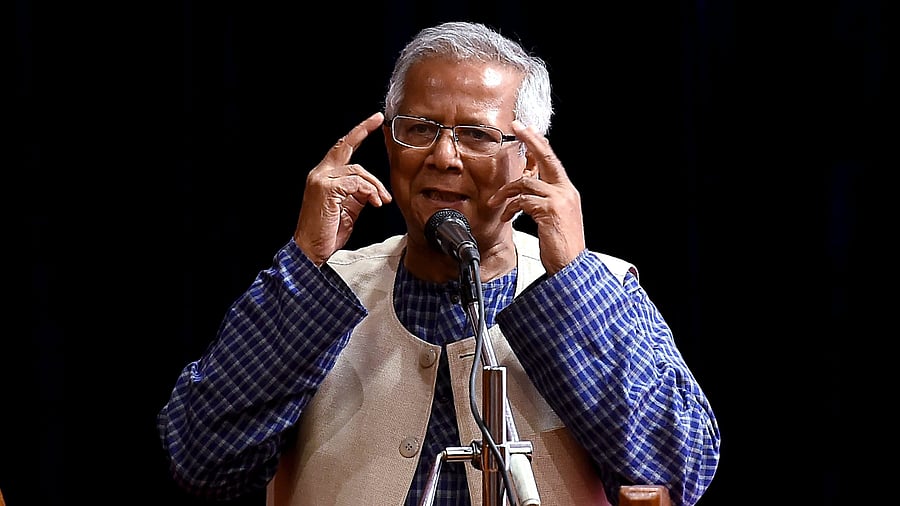
Muhammad Yunus, Chief Adviser of Bangladesh interim government
Credit: PTI Photo
New Delhi: President Donald Trump’s administration in Washington DC discussed with New Delhi the situation in Bangladesh even as Muhammad Yunus’s interim government in Dhaka hosted a delegation of the military spy agency of Pakistan while China promised India’s eastern neighbour to help safeguard its “national independence, sovereignty and national dignity”.
A delegation of Pakistan’s Inter-Services Intelligence (ISI) has been on a visit to Bangladesh since Tuesday. The advisor on foreign affairs of Bangladesh’s interim government, Md Touhid Hossain, on the other hand, met his Chinese counterpart Wang Yi in Beijing on Tuesday.
New Delhi is keeping a close watch on Dhaka’s increasing engagements with China and its ‘iron brother’ Pakistan amid stress in ties between India and Bangladesh after the fall of Prime Minister Sheikh Hasina’s government in the neighbouring country in August 2024.
With New Delhi being concerned over the persecution of Hindus and other minority communities of Bangladesh over the past few months, External Affairs Minister S Jaishankar discussed the issue with the new United States Secretary of State Marco Rubio during the first formal engagement between President Donald Trump’s administration and the Government of India.
“Yes, we had a brief discussion on Bangladesh. I don’t think it’s appropriate that I get into more details” Jaishankar said while speaking to journalists about his meeting with Rubio in Washington DC.
A few days before the US presidential elections on November 6, Trump, the candidate of the Republican Party, had condemned the “barbaric violence” against the Hindus, Christians and other minority communities in Bangladesh.
The attempt by Yunus’s interim government in Dhaka to dismiss New Delhi’s concerns over atrocities on Hindus in Bangladesh strained the bilateral relations. Dhaka’s call for extradition of Sheikh Hasina from India to Bangladesh and the tension along the border between the two sides also worsened the ties between the two neighbouring countries.
The Pakistan Army’s genocide in East Pakistan before its defeat to the Muktijoddhas and the Indian Army leading to the birth of Bangladesh in 1971 cast a long shadow over Dhaka’s relations with Islamabad over the past half a century.
After taking over as the chief advisor of the interim government of Bangladesh on August 8, Yunus, however, had two meetings with Prime Minister Shehbaz Sharif of Pakistan – first in New York on September 25 and then again in Cairo on December 20 – and discussed the ways to move forward to end the historical animosity between the two nations.
Lieutenant General S M Kamrul Hasan, Principal Staff Officer of Bangladesh Armed Forces, recently met Pakistan’s defence secretary Muhammad Ali in Islamabad. He also had a meeting with Pakistan Army chief, Gen Asim Munir, in Rawalpindi.
It was a rare visit by a senior Bangladesh Army officer to Pakistan. This was followed up by the visit of Pakistani military intelligence officers to Bangladesh.
China had limited success in its bid to expand its influence over Bangladesh as long as Sheikh Hasina was in power as her Awami League government has been sensitive to the security concerns of India.
The recent visit of the foreign affairs advisor of the interim government of Bangladesh to Beijing was apparently an attempt to set the stage for Yunus’s visit to China and his meeting with Chinese President Xi Jinping.
“China supports Bangladesh in safeguarding its national independence, sovereignty and national dignity, exploring a development path that suits its national conditions, respects the choice of the Bangladeshi people, and is willing to continue to provide assistance for Bangladesh's economic and social development,” Wang Yi told Touhid Hossain.
